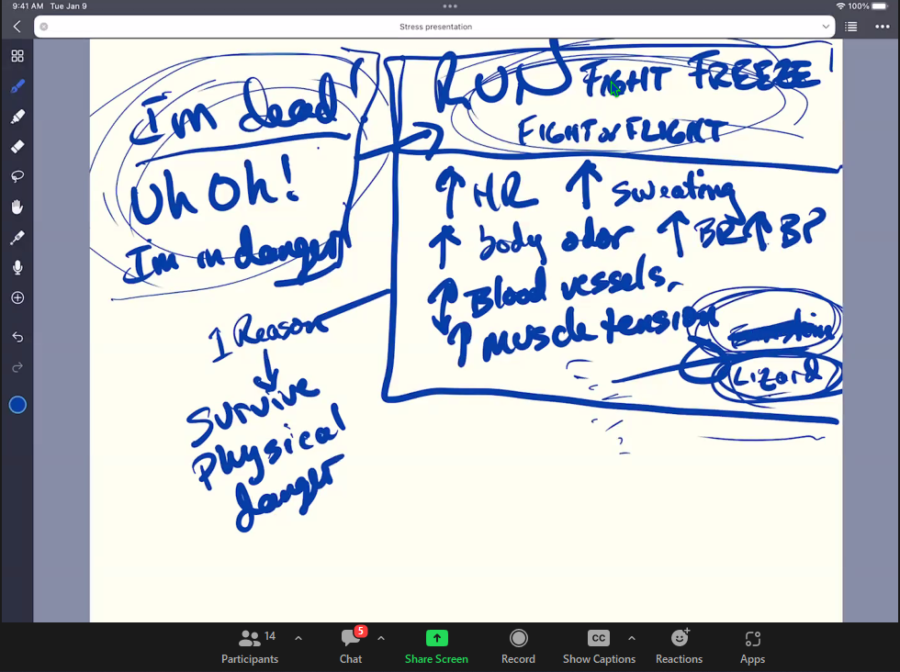- Above the Scroll
- Academics
- Campus Community
- Campus Events
- Culture
- Culture/Diversity
- Ogden Community/Events
Semester De-stressers
Stress is something many college students have in common. From trying to earn good grades, to finding internships and making sure there’s food on the table, there are many stressors for the average student. Finding a healthy way to manage stress is important for mental and physical health.
A virtual meeting was hosted by the mentoring program on Feb. 15 over Zoom and featured Michael Olpin, professor of health promotions at Weber State University and the Stress Relief Center director. Olpin emphasized during his presentation that you can reduce stress by training your brain to have less “uh-oh thoughts.”
An “uh-oh thought,” as Olpin explained, is the first thought people have when something goes wrong. It is the thought that triggers our fight-or-flight response. Olpin compared it to an analogy of our prehistoric ancestors and their reaction to coming face-to-face with a bear. The first thought upon seeing the bear would be an acknowledgement that there is present danger, or an “uh-oh thought.”
People no longer face the constant danger of predators, so our stress response is instead triggered by events that present no real threat, like rush hour traffic or public speaking. “The difference between us and our ancestors is we keep saying ‘uh-oh’ all day long to things that aren’t dangerous,” Olpin said. “We call that chronic stress.”
Olpin outlined the typical stress response. It begins with a stage of rest and repair, where people achieve homeostasis, or balance. Then a threat triggers a fight-or-flight response. From there, people sink into an exhaustion and once recovered they return to rest and repair. The problem manifests when the fight-or-flight response lasts more than 15-30 seconds and never recovers, which leads to chronic stress.
Olpin compared reducing this stress to taking care of a garden. Stressors are the weeds, and most people only pluck out the tops of them. Olpin said to efficiently take care of stress, people need to dig through and pull out the roots of these weeds, or eliminate the anxious thought that triggers the stress response.
Olpin also included things people can do to reduce stress. He asked the audience to list things they did to reduce their stress, and they responded with techniques like conscious breathing, fidget toys and listening to music. He expanded on the list by adding exercise, getting enough sleep and spending time outside. “If you can prevent the thought, you prevent stress. If you do not have a threat thought, you do not activate,” Olpin said.
Olpin currently teaches an honors class about mindfulness and meditation in HNRS 4920. The concept of mindfulness and more will be discussed when the class becomes available again in the fall semester.












